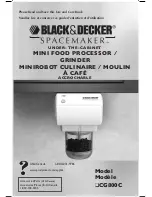
© Confidential
Page: 97 / 97
This document is the sole and exclusive property of WAVECOM. Not to be distributed or divulged without prior
written agreement.
WM_PRJ_Q2686_PTS_001-010
June 30, 2009
Q2686 Wireless CPU
®
7.2.2.5
Aircraft
Turn your terminal OFF before boarding any aircraft.
•
Use it on the ground only with crew permission.
•
Do not use it in the air.
To prevent possible interference with aircraft systems, Federal Aviation
Administration (FAA) regulations require you should have prior permission
from a crew member to use your terminal while the aircraft is on the ground. In
order to prevent interference with cellular systems, local RF regulations prohibit
using your modem while airborne.
7.2.2.6
Children
Do not allow children to play with your GSM terminal. It is not a toy. Children
could hurt themselves or others (by poking themselves or others in the eye
with the antenna, for example). Children could damage the modem, or make
calls that increase your modem bills.
7.2.2.7
Blasting Areas
To avoid interfering with blasting operations, turn your unit OFF when you are
in a "blasting area" or in areas posted: "turn off two-way radio". Construction
crew often uses remote control RF devices to set off explosives
.
7.2.2.8
Potentially Explosive Atmospheres
Turn your terminal OFF when in any area with a potentially explosive
atmosphere. Though it is rare, but your modem or its accessories could
generate sparks. Sparks in such areas could cause an explosion or fire resulting
in bodily injuries or even death.
Areas with a potentially explosive atmosphere are often, but not always, clearly
marked. They include fuelling areas such as petrol stations; below decks on
boats; fuel or chemical transfer or storage facilities; and areas where the air
contains chemicals or particles, such as grain, dust, or metal powders.
Do not transport or store flammable gas, liquid, or explosives, in the
compartment of your vehicle which contains your terminal or accessories.
Before using your terminal in a vehicle powered by liquefied petroleum gas
(such as propane or butane) ensure that the vehicle complies with the relevant
fire and safety regulations of the country in which the vehicle is used.


































